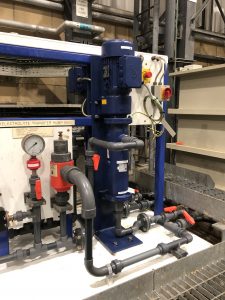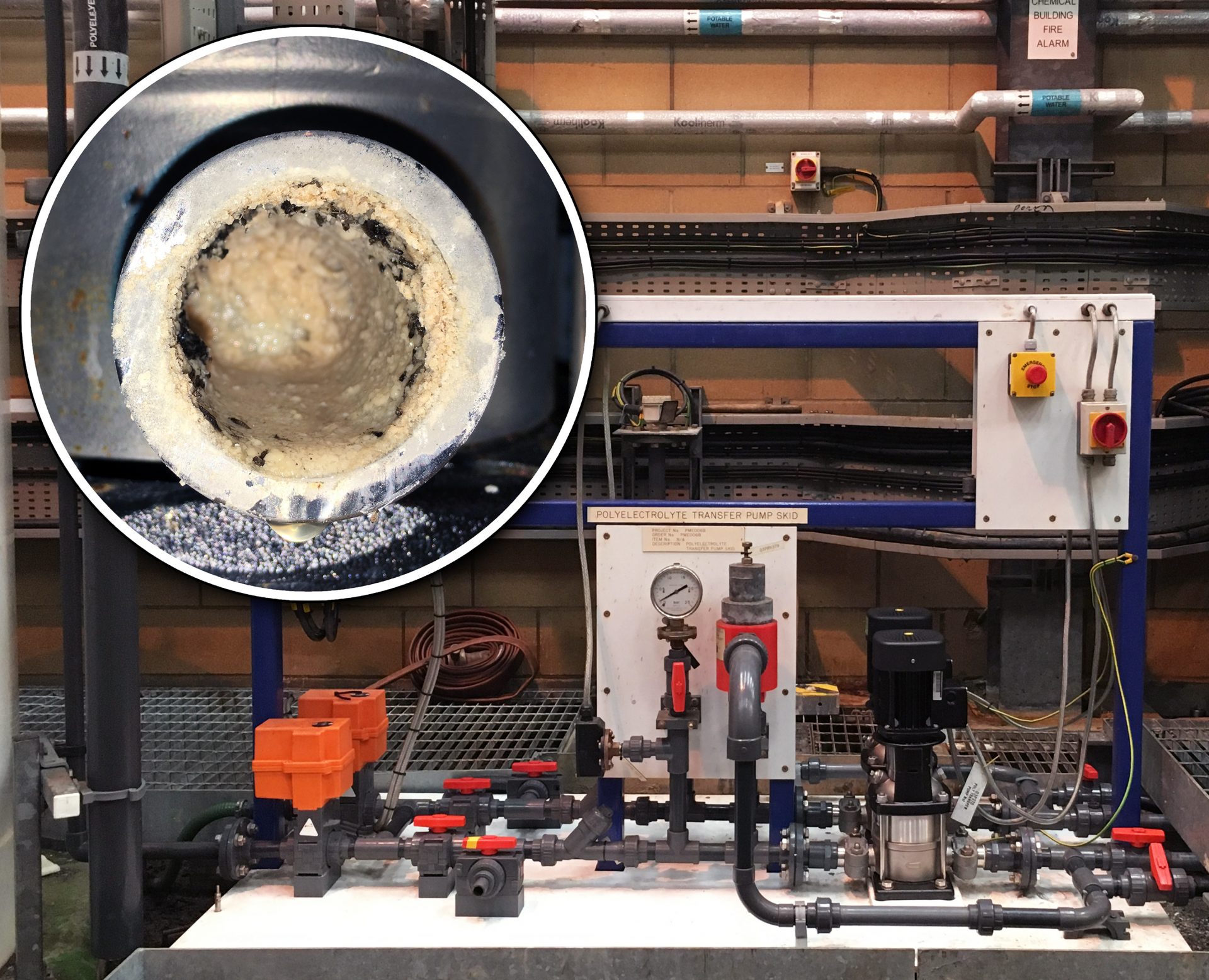While considerations should be made on the total cost of ownership (TCO) when specifying a pump, the most important criteria should be that it is fit for purpose, to ensure optimal productivity. Selecting the wrong pump can prevent the pump from performing to its full potential and lead to unnecessary downtime, wear, maintenance and energy consumption, product damage or reduced uptime of the process.
When selecting a pump, factors such as the viscosity of the product being conveyed, flow rate or the operating temperature should also be considered. Not all pump technologies are equal. Some are designed to handle low viscosity, others for highly viscous and high solids content products. Shear-sensitive media, for example, requires a pump with low shear action.
In wastewater treatment processes, polymers are used to thicken sludge by attracting all suspended fine particles to produce larger groups of solid materials through a process called flocculation. These flocculants are often extremely viscous and shear-sensitive once hydrated. Incorrect pump selection can affect the metering accuracy, damage the polymer structure and potentially the efficiency of the thickening process.
Wrong selection affects process performance
A Water Company was using two multi-stage vertical centrifugal pumps to handle polyelectrolyte for use as a flocculant agent and transfer it from a ‘make-up’ tank where the powdered polymer was mixed with water to their daily service tank.
However, build-up around the volute casing and impellers in the pumps severely affected the flow which required the pumps to be dismantled and cleaned – a process which took 2-3 hours per pump, and the pumps being replaced every 6 months.
The use of centrifugal pumps to transfer viscous media reduces their performance due to factors such as the effect of viscosity on the impeller, reduction in flow and the increase in horsepower required. But also their pumping action generates high shear, making them unsuitable to handle shear-sensitive products.
To address these challenges, SEEPEX was engaged to offer a cost-effective pumping solution.
The right pump for the duty

To meet the application’s requirements, SEEPEX selected progressive cavity pumps from their BW range for transferring the viscous polymer. Simple and compact for quick and straight forward maintenance.
Progressive cavity pumps have a low shear pumping action. Their flow rate is directly related to pump speed and have minimal pulsation, producing the lowest mechanical stress and minimising product shear damage.
Additionally, in a PC pump the stator is cleaned by the action of the rotor, eliminating any chance of product build-up and subsequent blockages which would otherwise affect pump performance.
No onward cost since installation
SEEPEX’s intervention has resulted in cost-savings for the customer as the new PC pumps have not suffered from blockages, used any spare parts or required maintenance since they were installed in 2018.



